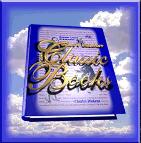World's Greatest Classic Books Feature:
Geoffrey Chaucer
Featured works:
All
Books Written By
Geoffrey Chaucer
BOOK LINKS
abebooks.co.uk.
A&E Shop
All-Ink.com
AlphaCraze.com
Amazon.ca
Amazon.com
Amazon.co.uk
BookCloseOuts.com
Booksamillion.com
Chapters.ca
eCampus.com
MUSIC LINKS
Music123
OldGlory.com
PlayCentric
PosterNow
PushPosters
Tower Records
SEARCH THE WEB
looksmart.co.uk
People-Finder.com
Search. Get Paid. Be Smart.
Died: October 25, 1400, in London, England
Chaucer was a fourteenth century poet whose major work, The Canterbury Tales, was a significant influence on the development of English literature. What is known about him was obtained primarily through the records of his employers: King Edward III, King Richard II, and King Henry IV.
He was the son of John Chaucer, a wealthy London wine importer. He may have attended the Latin grammar school of Saint Paul's Cathedral, and it is possible he studied law at the Inns of Court. By 1357 he was a page to the daughter-in-law of King Edward III, the countess of Ulster. In this position he most likely learned the use of arms and the ways of the court. Later, his access to royal courts may have provided him with an audience for oral readings of his written work. From 1359 to 1360 he served in the Hundred Years' War, during which time he was taken prisoner and ransomed.
In 1366 he married Phillipa Roet, a lady-in-waiting to the queen and sister of John de Gaunt's third wife. His first published original work was an elegy to the first wife of John de Gaunt, entitled The Book of the Duchess. Gaunt was a patron to Chaucer for most of the latter's life. By 1367 he was employed by Edward III as an esquire, and he continued to serve in various government and diplomatic capacities until at least until 1391. Some of his positions included controller of customs for London, clerk of the king's works (responsible for the maintainance of parks, roads and royal buildings), justice of the peace, and representative to Parliament. He also translated philosophical, religious and political texts.
Chaucer's visits to Italy as courtier and diplomat enabled him to encounter, and be influenced by, the works of Dante and Giovanni Boccaccio. Troilus and Criseyde, published in about 1385, is one such adaptation of Boccaccio's writings. This text is a poem over 8000 lines long with such complex characterization it has been called the first modern novel. Chaucer's masterpiece, The Canterbury Tales, is a collection of stories consisting of over 18,000 lines of poetry. The tales are unified by the umbrella story of a pilgrimage to Canterbury Cathedral. Each pilgrim tells stories to pass the time, and part of the genius of the work is the interaction amongst the different storytellers, and between the tales and the overall framework of the work.
This work is also significant in that Chaucer was writing in Middle English rather than in French as current fashion decreed. In addition, many different positions from fourteenth century society are represented and effectively characterized in the tales, from Knight to Reeve to Plowman. The satire that Chaucer employs against the abuses of the church, however, are retracted in his conclusion and the ensuing 'confession.'
Chaucer was instrumental in proving the capabilities of English as a literary language, and was the first to use particular poetic forms in English, such as iambic pentameter, the seven line stanza and the [heroic] couplet. His writing was a notable influence on such significant writers as Shakespeare, Dryden and Spenser. After his death in 1400, he was buried in the Poets' Corner of Westminster Abbey which was a great honor for a "commoner."

The Canterbury Tales
are told by traveling pilgrims who meet
at a tavern and have a storytelling contest to pass the time.
Each tale is preceded by an introductory prologue.

Troilus and Criseyde
Tragic verse romance by Geoffrey Chaucer,
composed in the 1380s and considered by some critics to be his finest work.

The Cambridge Chaucer Companion
Essays by
international Chaucer experts provide a challenging introduction to the poet. They
establish a context for Chaucer, discuss the significance of his position within it, and
apply detailed and innovative analysis to his poetry.

Chanticleer and the Fox
King of the
barnyard, Chanticleer struts about all day. When a fox bursts into his domain,dupes him
into crowing, and then grabs him in a viselike grip, Chanticleer must do some quick
thinking to save himself and his barnyard kingdom.





